Deliver Us Mars devs on being inspired by their telescope-making grandpa, and adding deadly climbing
Hands-on with the sequel to Deliver Us the Moon
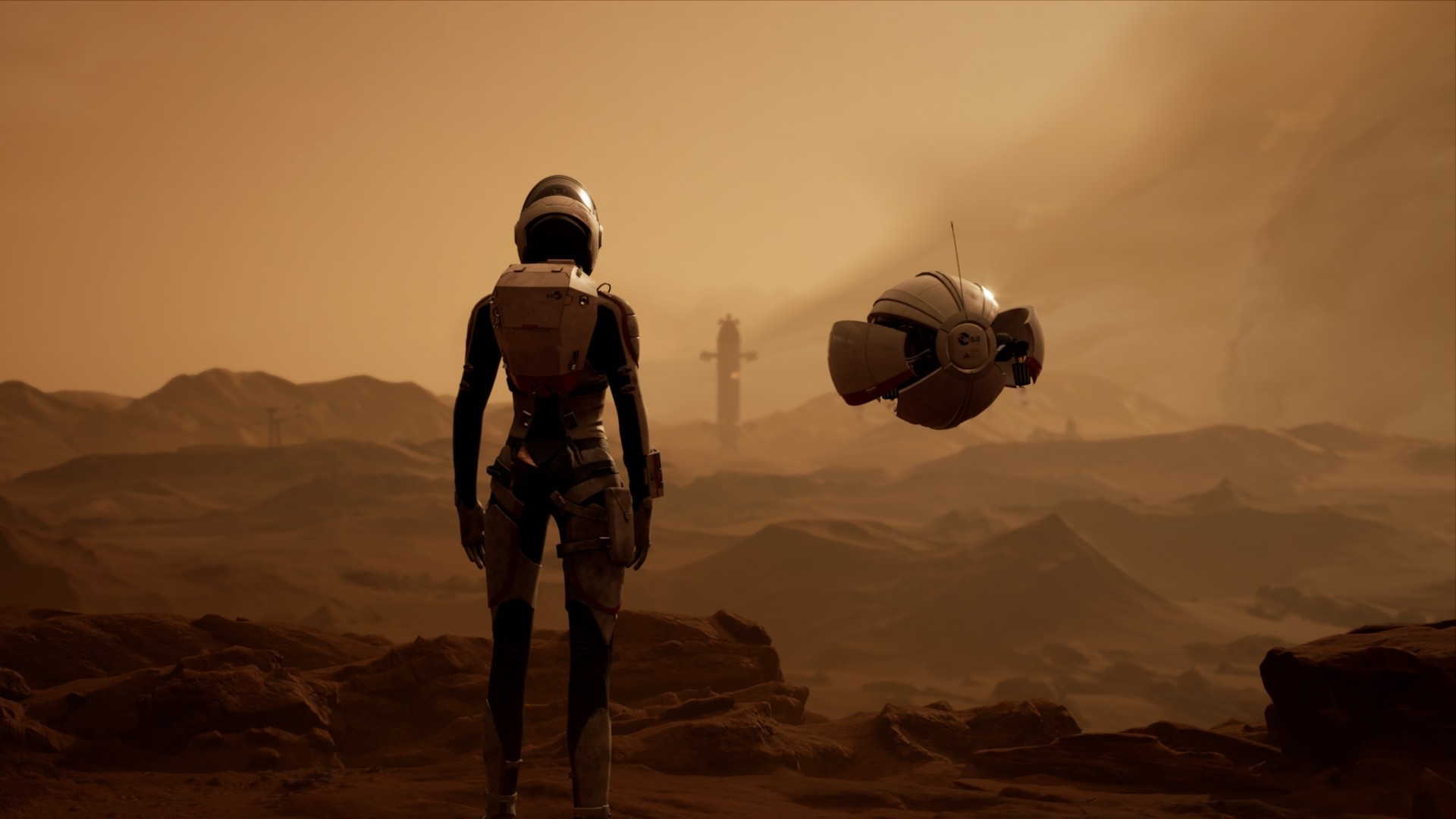
Deliver Us Mars is an atmospheric sci-fi adventure from KeokeN Interactive. It's the sequel to the studio's debut, Deliver Us the Moon, and marks a wholesome expansion and evolution of the 2018 game's formula. I didn't pick up the latter until its PS5 release earlier this year, and while I trusted the devs' promise that its follow-up would be more ambitious, I was pleasantly surprised by just how much broader it is in scope after going hands-on with its opening stretch. Deliver Us Mars is bigger conceptually and thematically, its narrative is more thoughtful and involved, and its puzzles are more intricate and sophisticated – some of which occasionally had me climbing up the walls, sometimes literally.
At this point looking forward, I reckon the introduction of climbing mechanics is Deliver Us Mars' crowning feature – a simple addition that turns so much of what I thought I understood about the first game on its head. But first looking back, I was fascinated to learn that the grandfather of KeokeN's co-founders – Koen and Paul Deetman – was a telescope maker in their homeland of the Netherlands, and that his unusual occupation and unique perspective had a huge bearing on where the studio stands today.
"Our grandfather made big telescopes, and used huge mirrors and lenses, sometimes the same ones used in the Hubble telescope that were flown over from the US," Koen explains. "He was just fascinated by the thought of anything more beyond this planet, by what's out there and what could be explored. He was somewhat of an introverted man, but with huge ideas inside of him. And so I think later on, when we were thinking about what inspired us, at one point it was so logical, it was like: yeah, of course, it must be grandpa that started this desire to explore space back in the day."
The Red Planet
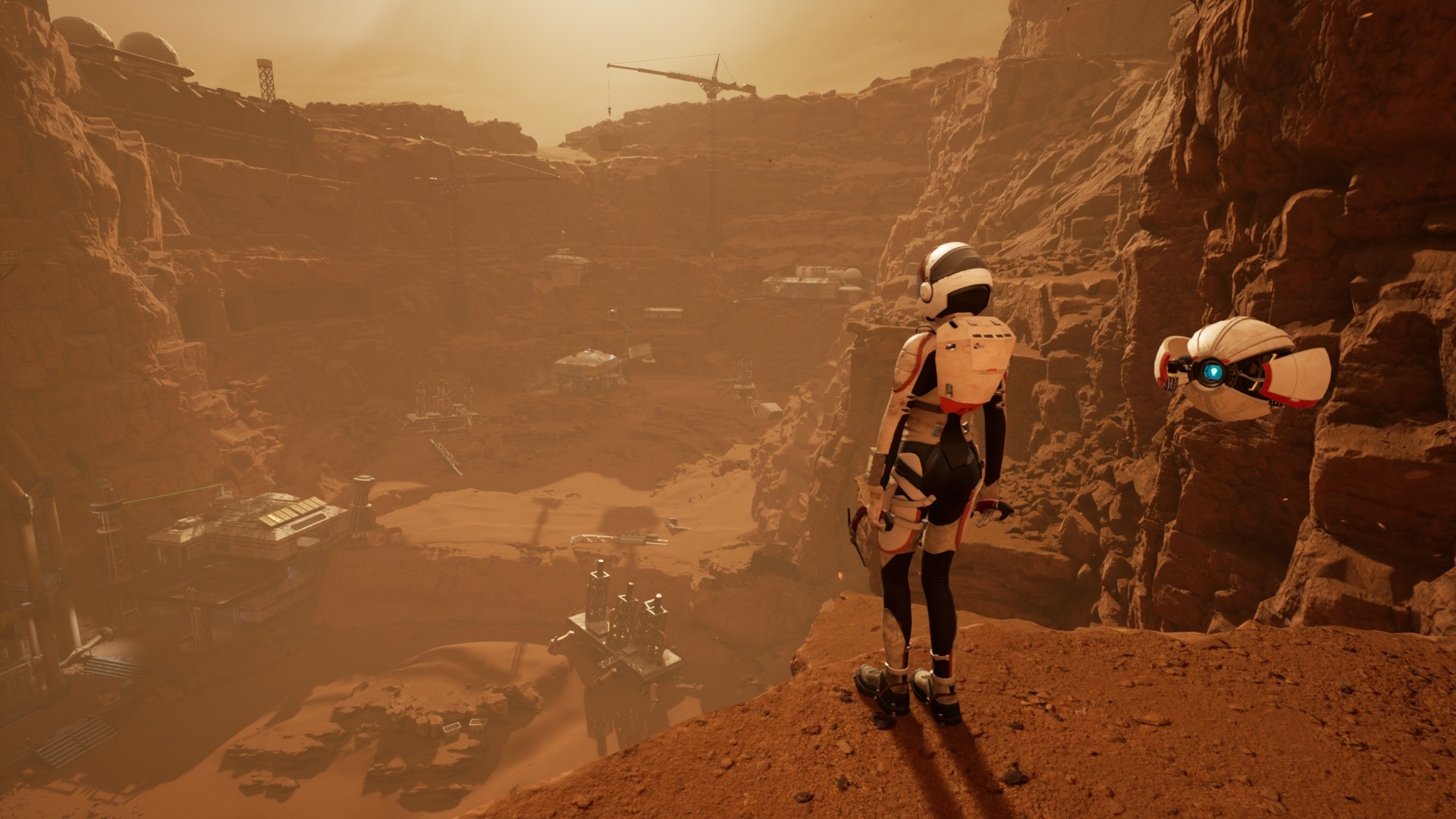
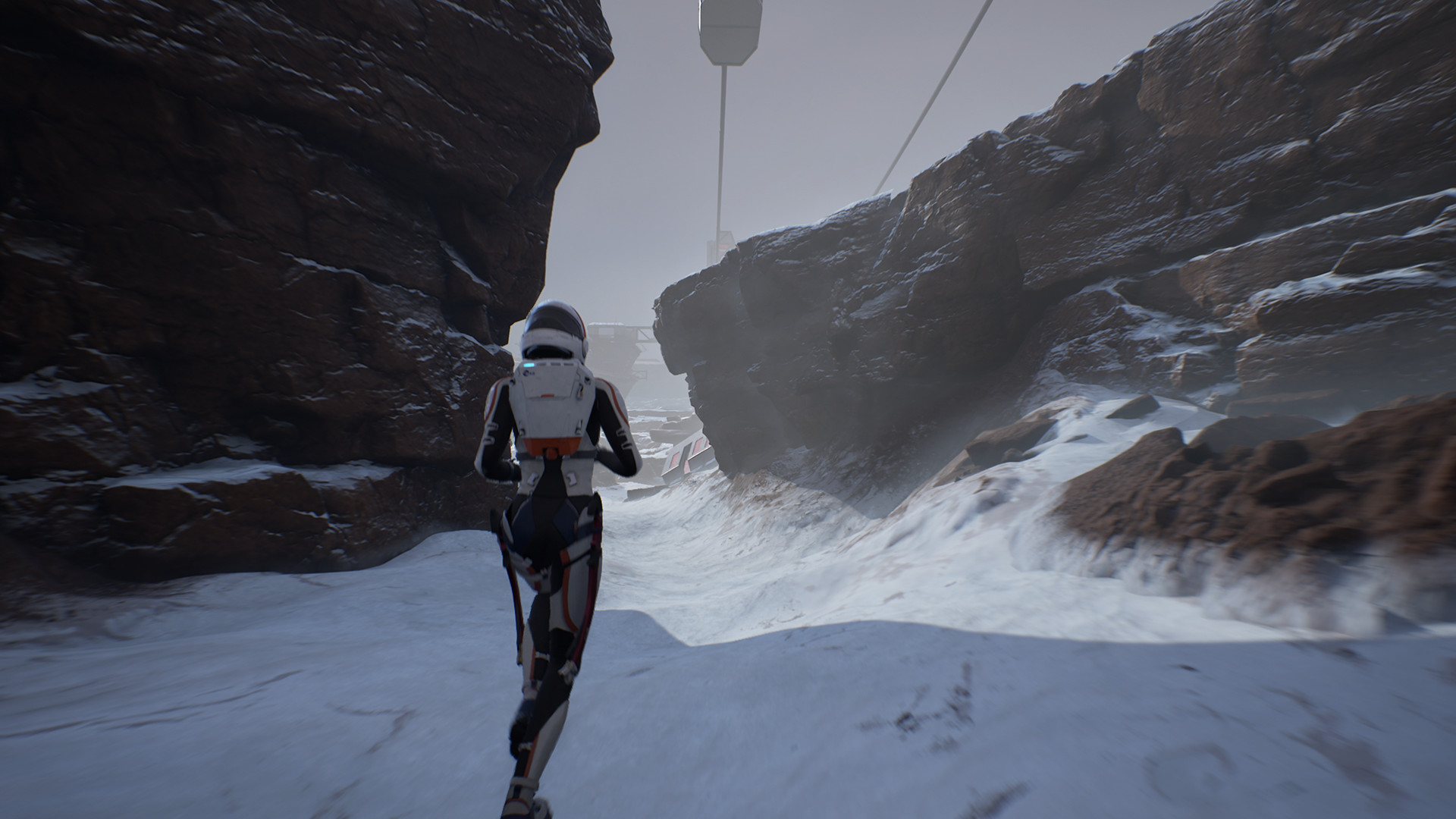
Deliver Us Mars devs on going the extra mile to create a credible alien world
Koen and Paul's innovating grandfather is sadly no longer with us today, but Paul fondly recalls the ways in which he communicated with his grandchildren. As a quiet man, Paul suggests outward expression didn't always come naturally, but being able to bond over shared interests – such as stargazing and studying the moon – brought them closer. Paul remembers being taken out at 2am, aged just six years old, to see Halley's Comet, and describes these endearing outings as his grandfather's way of expressing his own love language. He says: "In a way, it came very naturally. It wasn't a case of: we're going to make this game for grandpa, but it was more when we were thinking about the concepts of Deliver Us the Moon and now Deliver Us Mars, that we realized we're so fascinated by it all because of him."
At ground level, what I found so fascinating about Deliver Us Mars was how much the seemingly innocuous introduction of climbing mechanics could add to a game rooted in puzzle solving. With a bevy of pressure plate activation, automatic doors that require set amounts of electricity to function, laser-shooting turrets that provide said electricity, and dampener apparatus that govern the power of said electricity, Deliver Us Mars requires critical thinking on many levels. Set pieces often play out like thrilling rounds of The Crystal Maze, The Krypton Factor, or any other more contemporary game show that's underpinned by physical conundrums. When you throw climbing into that mix – here, a suitably laborious task that involves equipping dual pickaxes and alternating taps of your control pad's shoulder buttons – you're forced to think in three-dimensions, which in turn adds a whole new level of credibility to the setting.
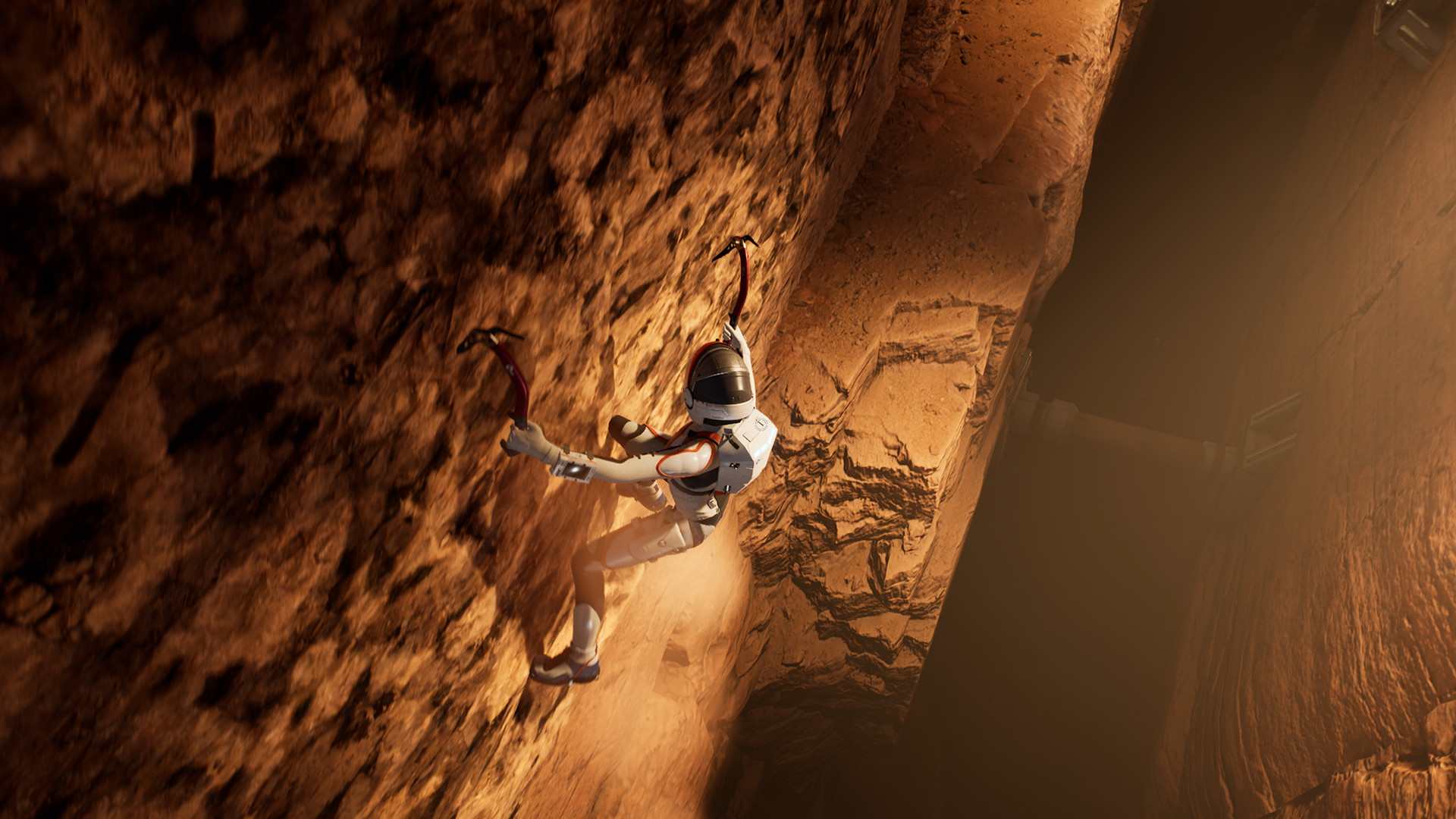
Koen explains that within the bounds of a non-combat game, having climbing feel like a genuinely risky activity – you must always have at least one pickaxe sunk into a wall, lest you plummet to your death – adds stress and tension to traversal. This was best illustrated towards the end of the demo segment I played, when parts of the crashed spaceship setting's exterior began to crumble, and I found myself scrambling across shifting, falling platforms while hoisting myself around increasingly unstable vertical structures. It all felt like something from a blockbuster movie, and this breakneck set piece alone is reflective of how far the developers have come over the last few years.
"We started this from the kitchen table," says Koen, "with nothing but the whiteboard from our sister's room. We started drafting up ideas, we thought about starting a studio, and then, fast forward 10 years and Paul and I are visiting the motion capture studio in London, there are 20 people running around, and we're like: Whoa, like, we're actually doing this. And let's just say it's all, so far, turned out a bit better than we envisioned when we started out."
Sign up to the GamesRadar+ Newsletter
Weekly digests, tales from the communities you love, and more
Art imitates life
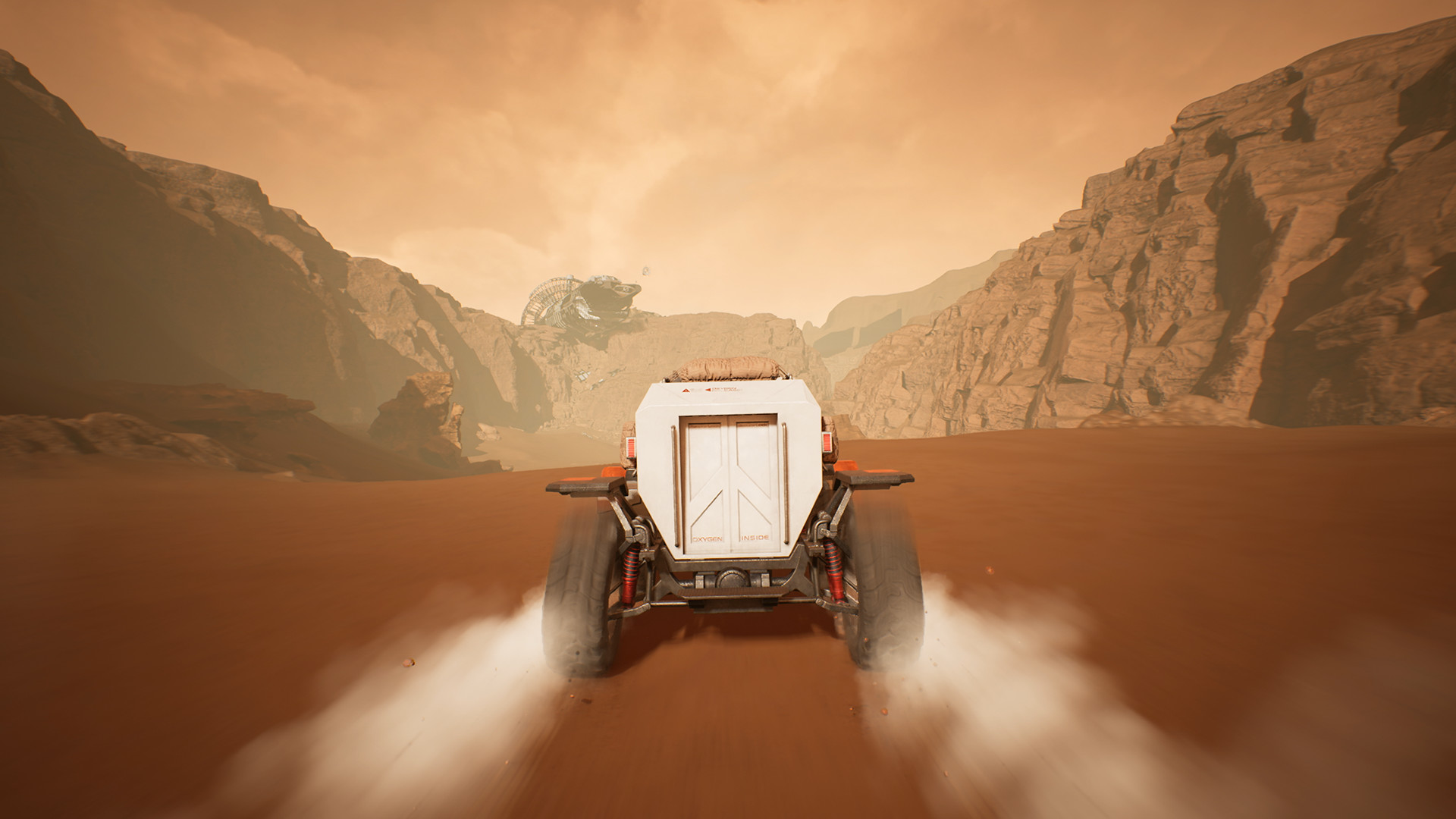
"Koen suggests that Deliver Us the Moon already predicted real-world progress, and jokes that Deliver Us Mars may be one step ahead of reality."
Now, KeokeN Interactive and Frontier Foundry look to the future; to Deliver Us Mars' February 2, 2023 release date, and to being able to share the next, ambitious stride forward in this sci-fi adventure series. With news that NASA's real-world Artemis Program is now officially underway – a long term robotic and human Moon exploration project that aims to inform future human travel to Mars – Koen suggests that Deliver Us the Moon already predicted real-world progress, and jokes that Deliver Us Mars may be one step ahead of reality.
"It's just fun to stay true to what the possible outcomes of the future may be," Koen says. "Maybe people have different opinions of what the future holds, and this is something that we really want to push forward as well. No one is saying what's right or what's wrong, but we like to be able to stand on the figurative podium and say: 'Hey, what do you think about this?' So, for Deliver Us Mars, first of all, it needs to be a great astronaut experience. But sure, there are also key thematics that we'd love players to think about beyond the game itself."
And with that, as much as I've loved my short time with Deliver Us Mars so far, I do hope eventual Mars exploration in reality involves less crashed spaceships and death-defying mountaineering. Surely that's not too much to ask! In the meantime, look forward to Deliver Us Mars when it lands on PC, PS5, PS4, Xbox Series X and S, and Xbox One on February 2, 2023.
Get lost above with the best space games

Joe Donnelly is a sports editor from Glasgow and former features editor at GamesRadar+. A mental health advocate, Joe has written about video games and mental health for The Guardian, New Statesman, VICE, PC Gamer and many more, and believes the interactive nature of video games makes them uniquely placed to educate and inform. His book Checkpoint considers the complex intersections of video games and mental health, and was shortlisted for Scotland's National Book of the Year for non-fiction in 2021. As familiar with the streets of Los Santos as he is the west of Scotland, Joe can often be found living his best and worst lives in GTA Online and its PC role-playing scene.


